In Le Marche we have a way of identifying people “outside” our region, ask them to pronounce the word “moscioli”. The Italian grammar rule would suggest it to be pronounced as mosciòli, but it is in fact pronounced mòscioli.
But what are these moscioli? They look like cozze but they are a local mussel species that is not cultivated; it lives predominantly in the coast area around the Mount Conero.
They taste a little finer and sweeter than, for example, the Dutch and Breton mussels and, since the water on the cliffs of the Monte Conero Natural Park is extremely clear, the moscioli are awarded as of “category A” quality.
But how are they harvested? My fellow blogger Elke and his husband Otto had the opportunity to learn more about it and to taste it during the Moscioli Festival. This event is organised every year by the organization “Slow Food Ancona e Conero” together with fishermen of the cooperative of Portonovo, a beautiful bay on Monte Conero. There are many events in the agenda, and you can also visit one of the fisherman’s hut, as Elke and Otto did with the one belonging to the over 80-year-old fisherman Sandro Stecconi:
- Sandro explains..
- and serves his mussels
The cabin, one of the few remaining in the bay, is almost in the water and Sandro tells proudly that he built it himself in the 1950s with the help of friends. And that since then it has been a never-ending struggle with the forces of nature to preserve the hut and protect it from storm and waves.
- View from the fisherman’s hut
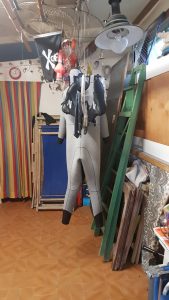
Dive suit
The mussel fishery is not an easy job: the fishermen emerge from their boats, they have no oxygen tanks, but they use a hose through which they are connected to the boat and through which they breathe. With a kind of shopping net and a homemade rake, which they strap to the arm like a prosthesis, they go or dive along the rocks of the cliff and break out the Moscioli. When the net is full, it is brought on board with a winch. The area stretches for about 3 km along Monte Conero. They spend 5-6 hours per use. It starts at 4 o’clock, says Sandro, this is the time when the young people come out of the disco these days. Accordingly, it is difficult to find young people willing to take over this job. But Sandro’s son is one who will continue the profession.
In the 1970s, when the fishery was booming and anyone who wanted to take a boat out to harvest Moscioli, there were 70-80 such shellfish boats in the bay. Today there are 5 left, because the payment for the Moscioli is low and the competition from imported mussels (the famous “Cozze”) from abroad is high.
- The boat
- Winch to hoist
- Tool for scratching out the shells
After the description about the job, it’s time to eat! Sandro distributes the freshly harvested mollusks, which were first harvested by his son in the morning, to the participants. Although they are only cooked in their own brew in a battered pot on an old gas cooker, they taste better than any mussels got in any restaurant, according to Elke.
This event is not only about tradition and food, but also about research. Elke and Otto met also Marco Giovagnoli, professor of sociology at the Università in Camerino and himself grown up in Ancona, telling more about the development of fishing and the development of the Bay of Portonovo. And another fisherman tells more stories. From the time when Prince Charles was in the bay, or when they found the largest clam at 250 grams, or when they sneaked away from their fields and leashes at night to dive for shells at night.
The Moscioli season goes every year from the 15th of May to the end of October. Those who come to Portonovo during this time can enjoy the Moscioli in restaurants or buy it at the Fisheries Cooperative next to the Restaurant Emilia.
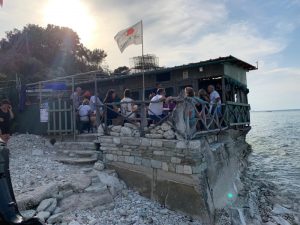
Moscioli eating and listening to stories in the fisherman’s hut – great event by Slow Food
The preservation of Moscioli is supported by the “Slow Food” organization. Moscioli are among the “Presidi Slow Food”, the most sensitive food worldwide. Here is the website about the Slow Food Presidium “Portonovo Wild Mussel”: link (English and Italian).
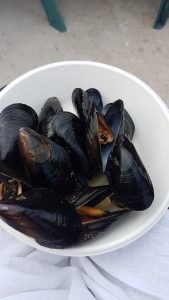
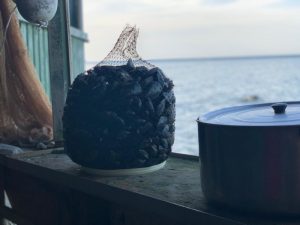
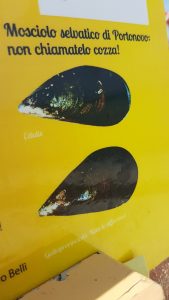
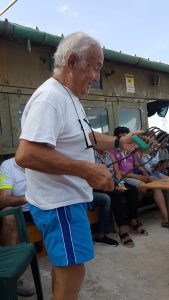
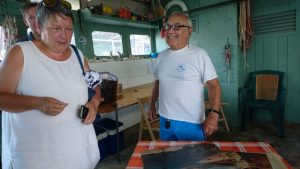
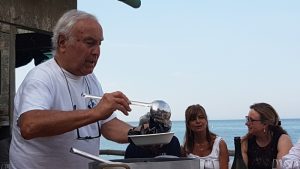
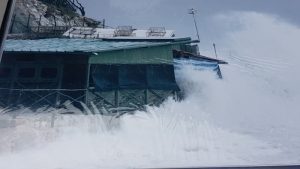
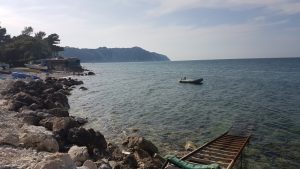
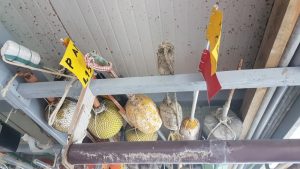
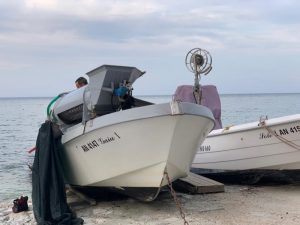
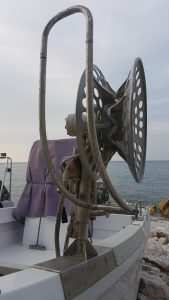
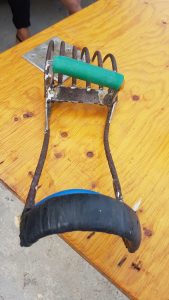
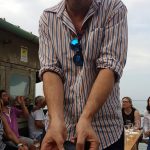
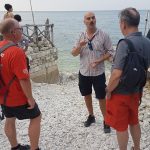
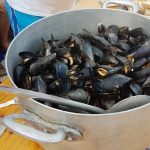
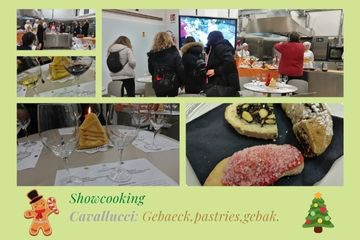
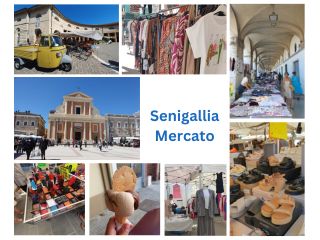
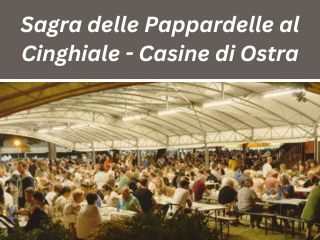
0 Comments